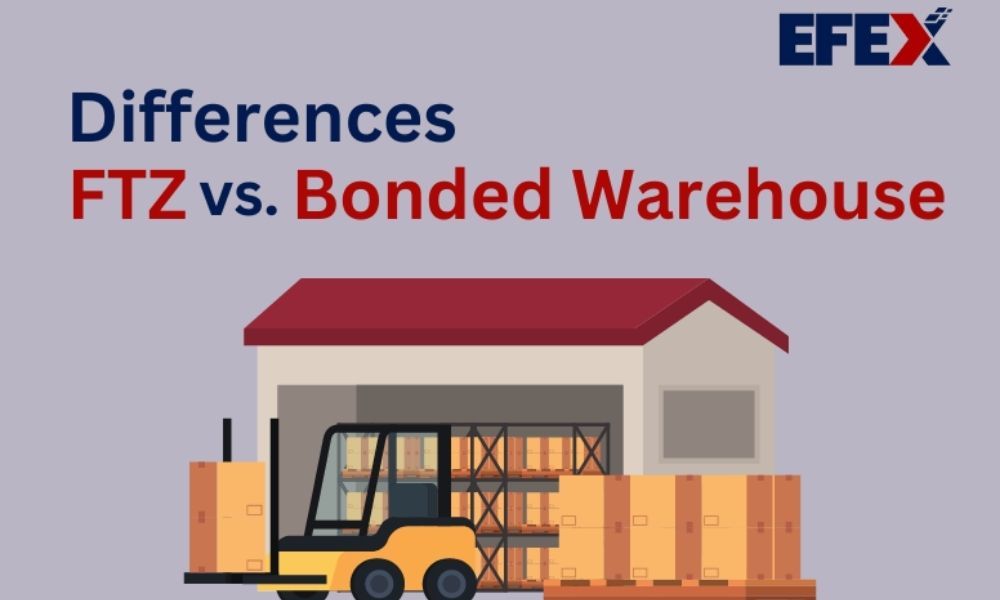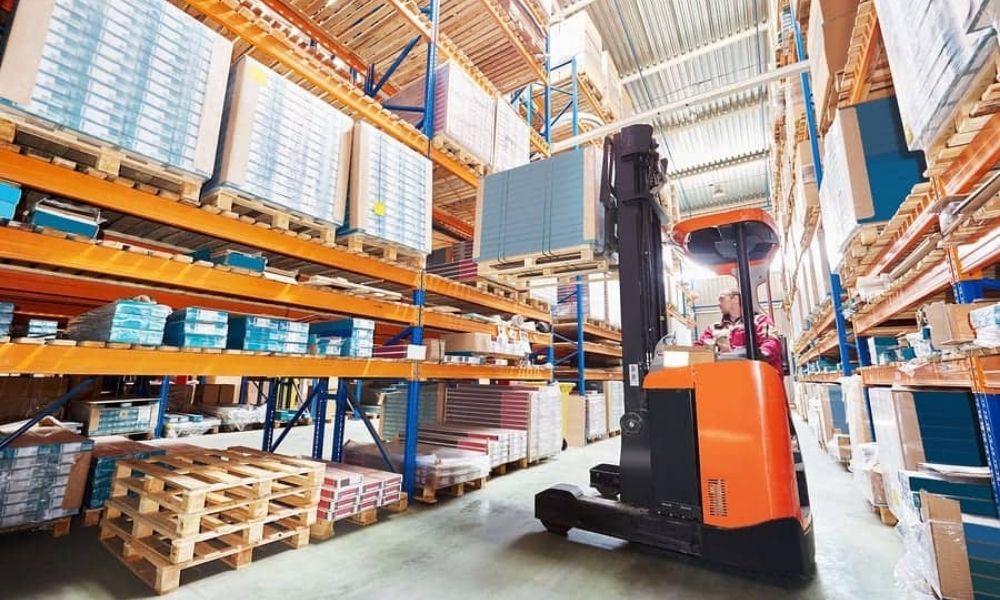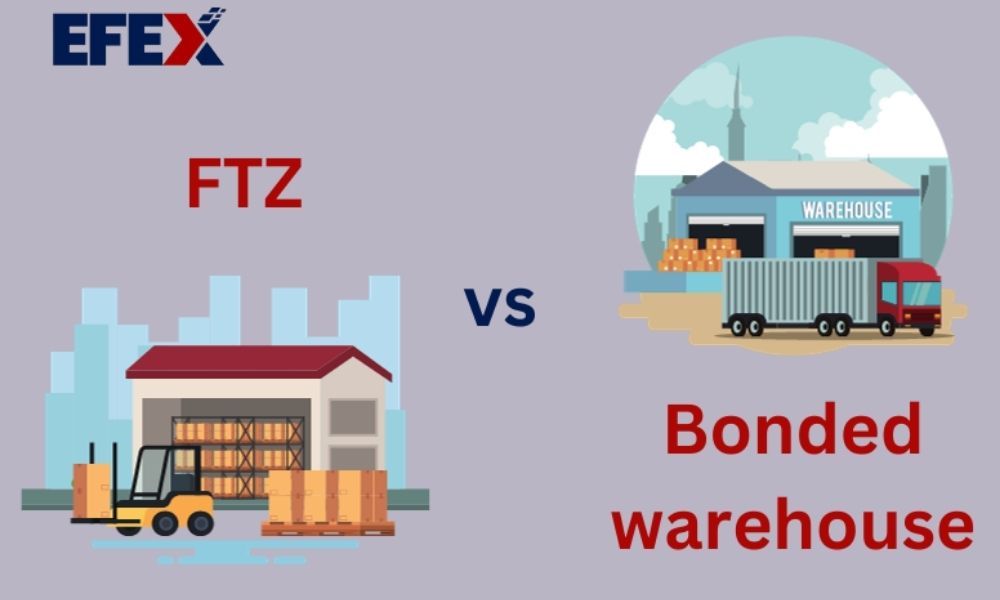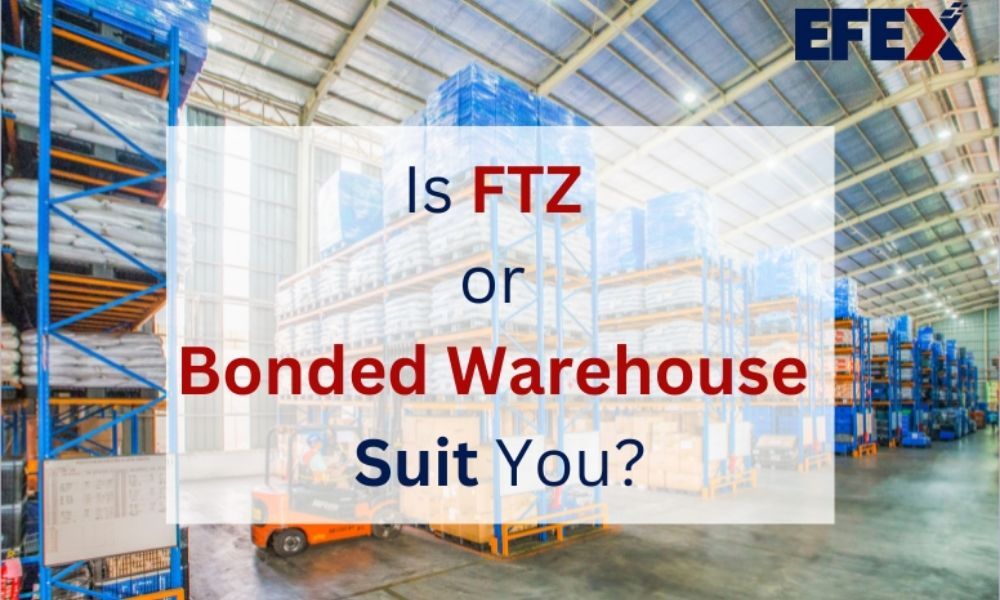
More Helpful Content
Both Free Trade Zones (FTZs) and bonded warehouses offer businesses unique benefits in terms of storage, commerce, manufacturing, and export. While these two may seem similar, they have distinct characteristics that set them apart from each other.
In this document, we will break down the key differences between FTZ vs. bonded warehouse to help you understand which option is best suited for your business.

When it comes to international trade, there are certain terms and concepts that can be confusing for businesses. Two such terms are Free Trade Zone (FTZ) and bonded warehouse. While both serve a similar purpose of facilitating international trade, there are distinct differences between the two.
A Foreign Trade Zone (FTZ) is a geographical area within a country where trade rules differ from the rest of the world. FTZ warehouses enable businesses to keep their products in one area and export items out of that zone as if they were manufactured there, reducing supply chain delays.
For examples, FTZ in the US are established with the goal of increasing the global trade and competitiveness of US enterprises. They are regions within the United States that the government regards to be outside of the United States customs area but are nonetheless governed by the United States.
An US FTZ is defined by the CBP (United States Customs and Border Protection) as “secure areas located in or near US ports of entry”. FTZs are legally deemed to be outside of the United States customs area for the purposes of tax assessment and entrance.
A bonded warehouse, on the other hand, is a secured facility authorized by the government to store imported goods without payment of duties and taxes until they are ready for export or released into the domestic market. The purpose of a bonded warehouse is to provide an intermediate storage location for goods that have not yet been cleared by customs.
For instance, bonded warehouses in the US are regulated by CBP and must abide by strict regulations and procedures to ensure the safe storage and handling of goods. They are typically operated by private companies, who must obtain a license from CBP to operate as a bonded warehouse.

While both FTZs and bonded warehouses provide storage for imported goods before they enter the domestic market, there are several key differences between the two.
Now that we have a better understanding of the differences between FTZs and bonded warehouses, let’s explore some of the benefits they offer to businesses.

One of the main advantages of using an FTZ is the ability to defer, reduce, or eliminate duties and taxes on imported goods. This can provide cost savings for businesses that import and export goods frequently.
Additionally, FTZs offer streamlined customs procedures and reduced paperwork requirements, making it easier for companies to conduct global trade.
Bonded warehouses offer similar benefits to FTZs, such as duty and tax deferral. However, bonded warehouses may be more beneficial for companies that need a longer storage period for their goods.
Furthermore, bonded warehouses can also provide added security for high-value or sensitive goods, as they are subject to strict CBP regulations.
👉 Read More: 8 Bonded Warehouse Advantages You Should Know In 2023
When deciding between an FTZ or a bonded warehouse, it is important to consider your specific business needs and goals.
The table below will summarize all the differences between these two warehouses, which help you have a clear understanding and make a suitable choice for your business.
| Function | FTZ | Bonded Warehouse |
| Customs Entry | Filed when goods are removed | Filed for goods to enter |
| Customs Bond | Not required for goods in an FTZ | Required for all warehouse entries |
| Permissible Cargo | Foreign and domestic goods | Only foreign goods |
| Payment of Duty | due only upon entry for US consumption | Due prior to release |
| State & Local Inventory Tax | Not taxed | Taxed |
| Manufacture of Goods | Permitted | Not permitted |
| Storage Period | Unlimited | Not to exceed 5 years |
| Permitted Activity | -Sort -Destroy -Clean -Grade -Mix with foreign or domestic goods -Label -Assemble -Manufacture -Exhibited -Sell -Repack | -Clean -Repackage -Sort under customs supervision |
| Domestic Goods | Admitted without customs permit and co-mingled with foreign goods | Not be admitted |
| Control of Goods | Full control 24/7 | During regular working hours |
| Movement of Goods | Relatively unrestricted in and out | Limited |
If your company frequently imports and exports goods and wants to take advantage of duty and tax deferral, then an FTZ may be the best option for you.
On the other hand, if your business requires longer storage periods for imported goods or requires added security measures, a bonded warehouse may be the better choice.

If you are in need of a bonded warehouse for your goods, look no further than EFEX. We have extensive experience in managing and operating bonded warehouses, ensuring the secure storage and handling of your goods.
Additionally, our bonded warehouses are strategically located near major Vietnam ports, making it convenient for businesses to import and export goods. We also offer Store inventory safe 24x7x365 service for your convenience.
Moreover, we provide an array of value-added services tailored to your specific requirements. These encompass labeling, kitting, and repacking, ensuring that we meet all your needs efficiently and effectively. Contact us today to learn more about our bonded warehouse services.
Overall, both FTZs and bonded warehouses serve important purposes in the global trade market. Understanding the differences between FTZ vs bonded warehouse can help businesses make informed decisions on which option is best suited for their needs.
Whether you choose an FTZ or a bonded warehouse, rest assured that EFEX has the expertise and experience to assist with all your storage needs.
So, no matter you are looking for tax benefits, streamlined customs procedures, or added security for your goods, EFEX has you covered. Contact us today to learn more about our services and how we can help your business grow in the global trade market.


